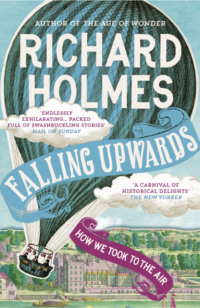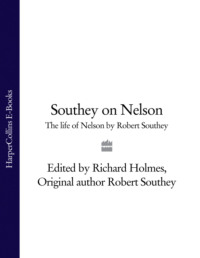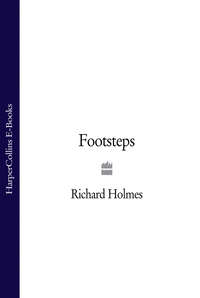
Полная версия
Dr Johnson and Mr Savage
Of all the versions of the night-walks which we have, it is that by Sir John Hawkins, with his direct knowledge of young Johnson from the mid-1740s, which most sharply emphasises the subversive political nature of their talks. Boswell consistently derides Hawkins’s accounts, not merely because he is the chief rival biographer, an amateur and musicologist, and so gratifyingly full of factual errors and ‘solemn inexactitudes’. For Hawkins, himself a lonely and awkward personality, gives an altogether rougher, darker, more emotionally unstable picture of the young writer finding his path than Boswell’s hero-worship will allow.
Hawkins’s youthful Johnson is never a comfortable figure, never a natural Tory clubman. He is anxious, self-doubting and obsessive. His politics, like his whole personality, are fierce and to some degree disruptive. Boswell could never be easy with this. Hawkins sees immediate common political ground between the two outcasts. ‘They had both felt the pangs of poverty, and the want of patronage: Savage had let loose his resentment against the possessors of wealth, in a collection of poems printed about the year 1727, and Johnson was ripe for an avowal of the same sentiments.’17
They both shared, according to Hawkins, ‘the vulgar opinion, that the world is divided into two classes, of men of merit without riches, and men of wealth without merit’. Hawkins also says that Savage’s ‘principles of patriotism’ – the semi-subversive Opposition to the Whig Government and the Hanoverian Crown – shaped Johnson’s political outlook during their talks, and may even have made him run the risk of Jacobite treason. ‘They both saw with the same eye, or believed they saw, that the then Minister meditated the ruin of this country; that Excise Laws, standing Armies, and penal Statutes, were the mean by which he [Walpole] meant to effect it; and, at the risk of their liberty, they were bent to oppose his measures …’18
Hawkins’s evident disapproval of this youthful radicalism makes it all the more convincing as evidence. It is exactly these political themes that Johnson does go on to address in his earliest, anonymous poetry and prose, up to the age of thirty-five. In the satire London, it takes the form of a general charge of political corruption against those in power:
Here let those reign, whom Pensions can incite
To vote a Patriot black, a Courtier white;
Explain their Country’s dear-bought Rights away,
And plead for Pirates in the Face of Day …19
In the pamphlet Marmor Norfolciense (1739) – viz. ‘The Stone of Norfolk’ – it becomes a specific attack on the Prime Minister, Sir Robert Walpole (whose estates lay in that county), and Hanoverian rule. As a recent critic, Thomas Kaminski, has observed, here ‘we find a Johnson unknown to the readers of Boswell – a rabid, harsh opponent of the ruling government, a critic not only of a party but of the King’.20 And in the Latin pastiche ‘prophesy’, attached to the pamphlet, which Johnson translated as the poem ‘To Posterity’, we meet a baleful vision of complete national subversion, the land overrun by alien redcoat soldiers, and the entire British population ready for rebellion:
Whene’er this Stone, now hid beneath the Lake,
The Horse shall trample, or the Plough shall break,
Then, O my Country! shalt thou groan distrest,
Grief swell thine Eyes, and Terror chill thy Breast.
Thy Streets with Violence of Woe shall sound,
Loud as the Billows bursting on the Ground.
Then thro’ thy Fields shall scarlet Reptiles stray,
And Rapine and Pollution mark their Way …
Then o’er the World shall Discord stretch her Wings,
Kings change their Laws, and Kingdoms change their Kings.21
So Hawkins’s night-walk is that of romantic, political malcontents. The two men are penurious, angry, to some degree sinister. The walk has a wintry atmosphere, chill and discomforting, with even a hint of cloak and dagger. Like Boswell, like Reynolds, like Murphy, Hawkins also says he is telling the story directly as Johnson described it; only as something that happened frequently, perhaps over many months.
Johnson has told me, that whole nights have been spent by him and Savage in conversations of this kind, not under the hospitable roof of a tavern, where warmth might have invigorated their spirits, and wine dispelled their care; but in a perambulation round the squares of Westminster, St James’s in particular, when all the money they could both raise was less than sufficient to purchase for them the shelter and sordid comforts of a night cellar. Of the result of their conversations little can now be known, save, that they gave rise to those principles of patriotism, that both, for some years after, avowed.22
Hawkins’s suspicions would have been further darkened had he known – or had he suspected that Johnson knew – that Savage, many years previously, had actually been arrested and questioned on a charge of treasonable, Jacobite publication; and that for some months he was the subject of Secret Service reports.23 Whether young Johnson knew this then, or later, will soon become a leading question about their friendship.
For Johnson himself these night-conversations in London with Savage were a transforming experience. They shaped his idea of the city itself, his politics, and his whole notion of the writer’s task and situation. That Savage appeared both poor and outcast must have struck him as bitterly ironic and yet curiously glamorous. Here was a brilliant, strange and enchanting man, who had known all the leading writers of the day – Sir Richard Steele, Colley Cibber, Alexander Pope, James Thomson – and moved in circles close to Parliament and the Court. Yet he was reduced to the back streets, he voiced subversive politics, and he befriended someone as obscure and socially inept (not to say monstrous) as Johnson himself.
Savage needed company and talk, needed them with something approaching desperation, to act out his own life and his extensive fantasies. This soon became clear to Johnson. In this too there was at once a common bond. Both men dreaded solitude, and Savage had found a remedy with which Johnson instantly identified. Talk held off the terrors and depressions of loneliness.
‘His Method of Life particularly qualified him for Conversation, of which he knew how to practise all the Graces,’ wrote Johnson appreciatively. ‘His Language was vivacious and elegant, and equally happy upon grave or humorous Subjects. He was generally censured for not knowing when to retire, but that was not the Defect of his Judgment, but of his Fortune; when he left his Company he was frequently to spend the remaining Part of the Night in the Street, or at least was abandoned to gloomy Reflections, which it is not strange that he delayed as long as he could …’24 This could be Johnson writing of himself. One can begin to see how sympathetically two such men might meet, as Cave’s offices emptied at Clerkenwell, or the taverns closed along the Strand.
So when Johnson came to write Savage’s Life in 1743, he put Savage’s night-walking at the heart of the story of his literary career. He did it so powerfully that he created a legend, almost an eighteenth-century archetype, of the Outcast Poet moving through an infernal cityscape, the ‘City of Dreadful Night’, in which his eye alone witnesses the horror, filth and misery that the rich and powerful have created as they slumber, uncaring.
To achieve this, Johnson does something extraordinary. He completely withdraws himself from the story. He never makes a single mention of himself as Savage’s night-time companion. The two Hogarthian figures, joined in their companionable talk, who appear again and again in the memoirs, never once appear in Johnson’s original account. Savage is essentially, and one might say symbolically, alone.
Johnson places this description or evocation of the Outcast Poet at a pivotal moment in his own narrative. It is set in 1737, immediately after the publication of Savage’s poem ‘Of Public Spirit’ (including an extract in the Gentleman’s Magazine), and at the time that Johnson himself first arrived in the city and became aware of Savage’s work (though this fact is studiously omitted).25
The theme of Savage’s poem is also dramatically relevant. It considers how far the State is responsible for the poor, incapacitated or underprivileged in society; and in particular whether the Whig policy of expatriation – forcible emigration to the new colonies in North America and Africa – can be morally justified. Is this ‘out-casting’ of men from their native homes and families, a true expression of ‘Public Spirit’?
Rising above his own situation, like the true poet, Savage touches on this general issue of social justice, which Johnson summarises with angry force:
The Politician, when he considers Men driven into other Countries for Shelter, and obliged to retire to Forests and Deserts, and pass their Lives and fix their Posterity in the remotest Corners of the World, to avoid those Hardships which they suffer or fear in their native Place, may very properly enquire why the Legislature does not provide a Remedy for these Miseries, rather than encourage an Escape from them. He may conclude, that the Flight of every honest Man is a Loss to the Community …26
But Savage, here presented by Johnson as the spokesman for the oppressed, goes much further than this. He attacks the whole notion of colonisation itself.
In historical terms of the early eighteenth century this is a truly radical position. Savage runs directly counter to the prevailing maritime, trading and enterprise culture of commercial exploitation, which Walpole’s administration notoriously represented, with support for such institutions as the South Sea Company and the East India Company. Again, Johnson’s summary is forceful and angry: ‘Savage has not forgotten … to censure those Crimes which have been generally committed by the Discoverers of new Regions, and to expose the enormous Wickedness of making War upon barbarous Nations because they cannot resist, and of invading Countries because they are fruitful; of extending Navigation only to propagate Vice, and of visiting distant Lands only to lay them waste.’27 Ever afterwards, this anti-Imperialist stance became Johnson’s own.
In his poem Savage is specific about colonial exploitation. To illustrate this, Johnson does something new in literary biography. He quotes extensively from the poetry and begins to integrate these quotations into the texture of his prose narrative by placing them in careful footnotes. These quotations are, technically, a new biographical device, because they bring us an impression of Savage’s own voice, of Savage actually talking to the reader (and of how he talked to Johnson). It is the biographer’s answer to the novelist’s most powerful mode of verisimilitude: direct speech.
The quotations perform the role of ‘authentic’ monologue, a mode which would normally imply that very fictionalisation which Johnson had dismissed as a legitimate means of historical truth. By taking them from Savage’s own poetry, Johnson gives them textual authenticity: these are his own words, they are not invented, but they strike us in his own voice, they are what he actually said. Moreover, by using extracts, Johnson effectively reanimates Savage’s work.
Savage’s lines paradoxically work much better as fragments of contemporary reported speech than as more formal and extended passages of mid-eighteenth-century poetry. That is, compared to the best of Pope or Thomson they are weak; but compared to some of the diffuse, first-person narratives of Defoe or Eliza Haywood they are vividly alive. As a critic, Johnson knew that ‘Of Public Spirit’ was a slapdash performance – ‘not sufficiently polished in the Language, or enlivened in the Imagery, or digested in the Plan’.28 But as a biographer he knew it was deeply expressive, and conveyed one aspect of Savage’s fantastic idealising power with great intensity.
Savage’s two main targets are the East India trade in silks, spices, hardwoods and other luxury goods; and the West African trade in black slaves. Both produce their own kinds of oppression, and make outcasts of men powerless within their system. In India he sees this primarily as a cultural oppression, in which the indigenous populations are simply subdued by the Western traders, who care nothing about native laws, customs or religions. He calls on the colonisers to be more respectful, more just, more generous:
Do you the neighb’ring, blameless Indian aid,
Culture what he neglects, not his invade;
Dare not, oh! dare not, with ambitious View,
Force or demand Subjection, never due.29
In Africa, he recognises with horror a trade in human bodies that is both indefensible in itself and cruel and hypocritical in its operation. The great Whig merchants, so much of whose personal wealth, houses, estates and even servants are drawn directly or indirectly from this trade, defend themselves with the cry that ‘while they enslave, they civilize’.30
The black servant – especially as coach-driver, table-waiter or personal valet – was a familiar feature of eighteenth-century London smart society. Johnson himself later took on a black manservant, Frank Barber, originally as a wild and illiterate teenager, who promptly ran away to sea. But this was one of Johnson’s spiritual reparations: he took infinite trouble to trace him, buy him out of the service, educate him, provide for him and his family, and eventually made him an inheritor in his will, so he became virtually an adopted son, ending his days in ease in Hampshire, corresponding genially with Boswell. Savage saw this enslavement with acute revulsion, which suggests at some level a personal identification:
Why must I Afric’s sable Children see
Vended for Slaves, though form’d by Nature free,
The nameless Tortures cruel Minds invent,
Those to subject, whom Nature equal meant?31
The clue to this identification may lie in the word ‘cruel’, which Johnson discovered had an almost talismanic significance for Savage’s personal mythology. But the political implications for Savage of such colonial and imperial attitudes were frankly apocalyptic. The imperial London through which they walked, like Cassandras in the night, might be destroyed by its own unjustly subject peoples. The wheel of fortune and of power would turn round; the outcasts would occupy the inner seats of power:
Revolving Empire you and yours may doom;
Rome all subdued, yet Vandals vanquish’d Rome:
Yes, Empire may revolve, give them the Day,
And Yoke may Yoke, and Blood may Blood repay.32
These parallels with the decline and fall of Rome were particularly significant to Johnson, because they were to lead him to the satires of the second-century Roman poet Juvenal, as a new model for his own poetic persona in London.
Savage and Juvenal were always closely connected in Johnson’s mind as critics of a corrupt, materialist, urban society. Savage roamed through London as Juvenal once roamed through Rome; and Johnson followed both.
With the publication of his poem ‘Of Public Spirit’ in June 1737, Johnson is able to present Savage as he first perceived him. He is the spokesman for the outcast, the oppressed, the ‘sons of Misery’.33 He is even the spokesman for the daughters of misery, the prostitutes of the city, the ‘beauteous Wretches’ who the ‘nightly Streets annoy, / Live but themselves and others to destroy’.34 Savage stands out against social injustice. ‘He has asserted the natural Equality of Mankind, and endeavoured to suppress that Pride which inclines Men to imagine that Right is the Consequence of Power.’35 He writes with ‘Tenderness’.36
It is against this heroic moral background that Johnson carefully places his portrait of the Outcast Poet. In biographical terms it is a close-up, or a montage of street scenes, animated and visualised. It is written with great force and anger, with almost poetic power.
The first paragraph enacts Savage’s progress through the dark labyrinth of streets in a single, unwinding sentence. Its keynote is one of pathos:
He lodged as much by Accident as he dined and passed the Night, sometimes in mean Houses, which are set open at Night to any casual Wanderers, sometimes in Cellars among the Riot and Filth of the meanest and most profligate of the Rabble; and sometimes, when he had no Money to support even the Expences of these Receptacles, walked about the Streets till he was weary, and lay down in the Summer upon a Bulk, or in the Winter with his Associates in Poverty, among the Ashes of a Glass-house.37
Clearly this is not the experience of one bohemian summer night out in the West End. This is a dreadful, Dantesque repetition, at all seasons, and at many locations over London: alleys behind the Strand, off Covent Garden, beyond the Fleet Ditch, behind St Paul’s, in Clerkenwell, off Smithfield, out in Spitalfields.
The alternative forms of lodging open to Savage mark the stages of a humiliating decline from poverty to absolute indigence. The ‘mean House’ would be a penny-a-night public lodging or spike, with stinking dormitories of wooden beds. The ‘Cellar’ would be a single, dark, basement dossing-room of sacks and straw heaps, fouled with urine and vomit, populated by drunks, diseased and ageing prostitutes, lunatics, tramps and psychopaths (the very same in which Johnson finds ‘Misella’).
The ‘Bulk’ was a low, wooden stall attached to a shop-front on which fresh market produce was displayed by day and left to rot at night: old vegetables at Covent Garden, old fish at Billingsgate, old meat at Smithfield. The ‘Glass-house’ was a small factory (like a bakery or kiln) where carriage-glass, window-panes, water jugs, wine-glasses, decorative buttons, cane-tops and other fancy ornaments were melted and cast in fast-burning coal-fired ovens, found all over the East End, with their brick chimneys billowing smoke and their backyards full of warm grey ash and clinker.
Here even a complete down-and-out could keep warm (just as the modern tramp sleeps on a ventilation-grille), though rising as ash-grey as a ghost in the morning. Thus Johnson charts Savage’s decline in the infernal city night; falling as low, if not lower, than those whose rights he ‘asserted’ as a poet.
The ashes of the Glass-house (like the ashes of the grave) may have had a particularly emotive overtone for the eighteenth-century reader. Glassware of all kinds, as opposed to metal or wood, was the province of the rich, and the expression of luxury and refinement. Even the clinker, which smelted into fantastic shapes and vivid oxidised colours, might be prized. It is an expressive irony that Savage’s one-time editor and publisher, the wealthy Aaron Hill, once planned to construct a 300-foot-square rockery in his splendid Richmond garden, composed of blue stones, seashells bought from London toyshops and ‘chosen clinkers, from the glass-houses’. The clinkers were to be carefully ‘picked out of the cinder heaps, and brought in boats’ up the Thames from the East End. On the top of this rockery Hill planned to build an elaborate Chinese summerhouse as an allegorical ‘Temple of Happiness’.38
Johnson never identifies himself as an ‘associate in Poverty’ with Savage, among those ashes. Yet he writes with an immediacy that suggests familiarity – if not first-hand knowledge – of such ‘Receptacles’ of the London night. He is rhetorically present, giving plain and moving testimony.
In the second paragraph Johnson stands back. Pathos turns to anger, plain testimony to high irony. This contrapuntal shift of keys or tones becomes one of Johnson’s most subtle methods of interpreting Savage’s life through narrative. He repeats the stations of Savage’s humiliation, word for word, object for object. But now he sets them into literary perspective with a note of bitter elegy. His phrases are shaped, given a rhythm and mounting climax of outrage. The Tramp is revealed as the Poet, and the ‘casual Wanderer’ becomes again the author of his greatest poem. Johnson for the first time reveals how passionately he feels about his friend, and how profoundly he identifies with Savage’s outcast situation.
In this Manner were passed those Days and those Nights, which Nature had enabled him to have employed in elevated Speculations, useful Studies, or pleasing Conversation. On a Bulk, in a Cellar, or in a Glass-house among Thieves and Beggars, was to be found the Author of the Wanderer, the Man of exalted Sentiments, extensive Views and curious Observations, the Man whose Remarks on Life might have assisted the Statesman, whose Ideas of Virtue might have enlightened the Moralist, whose Eloquence might have influenced Senates, and whose Delicacy might have polished Courts.39
The noble cadences into which Johnson finally lifts this passage, suggest that for his young listener Savage’s night-talk in the London streets sometimes approached the condition of poetry. It is a public poetry, which should have concerned the ‘Moralist’, the ‘Statesman’, the men in power at Parliament (‘Senates’) and at Court. In this sense Savage fulfilled the Augustan concept of the poet as potential ‘legislator’, put forward in Sir Philip Sidney’s Arcadia and reiterated by Imlac in Rasselas. But because of Savage’s outcast state, his poverty and humiliating sufferings, it is poetry which is not heard, not acknowledged, by those in power ‘Of Public Spirit’ sells exactly seventy-two copies.40 Savage is, for young Johnson, the poet who has no place, no social position, no influence on affairs, and literally no home.
Johnson is in effect making a Romantic claim for him. Savage is the Poet as Outcast, the poet as ‘unacknowledged legislator’. This was to be exactly the claim that, fifty years later, the anarchist philosopher William Godwin would make for all poets in Political Justice (1792); and his son-in-law Shelley would make with openly revolutionary intent in A Philosophical View of Reform (1820) and A Defence of Poetry (1821). Johnson had identified in Savage a new poetical archetype. He had, astonishingly, glimpsed in the back streets the first stirrings of the new Romantic age.
One further incident becomes part of Johnson’s heroic account of Savage’s night-existence in the great city. Johnson wrote: ‘Savage was … so touched with the Discovery of his real Mother, that it was his frequent Practice to walk in the dark Evenings for several Hours before her Door, in Hopes of seeing her as she might come by Accident to the Window, or cross her Apartment with a Candle in her Hand.’41
This haunting image of the figure shut out from the lit window, of the man in the edge of shadows and the beloved woman with her candle, also becomes an archetype of the Romantic outsider and can be traced down through popular fiction, even to its Victorian apotheosis in the figure of Heathcliff outside Cathy’s window in Wuthering Heights.
However, there may be another interpretation of this incident. Savage may not be a figure of pathos but of terror; not patiently waiting, but violently seeking entry; not a poetic outcast, but a pathological intruder.
Chapter 4 Mother
So much for the influential story of the night-walks, as it has come down to us. But how in practice did Johnson set about the task of transforming his private feelings into a public and commercially acceptable biography? His conversations with Savage had not been interviews. He had made no notes. He knew very little of Savage’s early life or contacts. Savage’s supposed mother, Lady Macclesfield (by now the seventy-year-old widow, Mrs Brett), was unapproachable. His early patrons, Sir Richard Steele, the essayist, and Anne Oldfield, the actress, were dead. Among his few close literary friends, James Thomson had become something of a recluse at Richmond, and Alexander Pope was mortally ill at Twickenham.
Johnson was not interested in what a modern biographer would call ‘research’. He did not even attempt to investigate the circumstances of Savage’s birth, or walk over to St Andrew’s, Holborn, to examine Savage’s baptismal register. (Years later it was Boswell who meticulously did all this.) He relied almost solely on the books, papers and magazine articles which Edward Cave could supply from the Gentleman’s Magazine archives.








